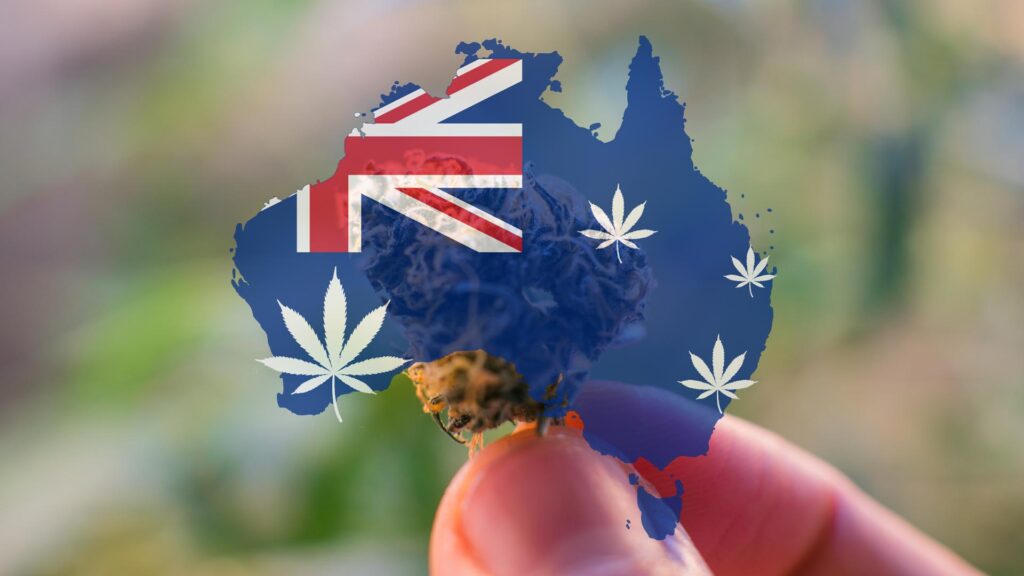Archives
- Home
- Plug420 Journal
- Posts
- CBD Australia
- What Does CBD mean in Australia –
What Does CBD mean in Australia –


Plug420
Australia CBD Market
Australia CBD – What Does CBD Mean in Australia – CBD oil Australia means that businesses working in the CBD industry in Australia will be able to purchase products containing low-dose cannabidiol (CBD) over the counter starting 1 February,
Data firm, FreshLeaf Analytics, forecasts the Australian medical cannabis market to surpass AU$200 million in 2021 and notes strong patient growth metrics by a factor of 15x over the past two years. Furthermore, Prohibition Partners estimates that the Australian medical cannabis market could reach US$1.5 billion by 2025.
Places To Buy CBD Products From In Asutraalia.
Check out These Providers
The Bong Warehouse
Best Benefits and Uses Of CBD (Plus Side Effects)
There have been many natural remedies for illnesses such as cannabidiol.
Better known as CBD, it is one of over 100 chemical compounds known as cannabinoids found in the cannabis or marijuana plant, Cannabis sativa.
Tetrahydrocannabinol (THC) is the main psychoactive cannabinoid found in cannabis, and causes the sensation of getting “high” that’s often associated with marijuana. However, unlike THC, CBD is not psychoactive.
This quality makes CBD an appealing option for those who are looking for relief from pain and other symptoms without the mind-altering effects of marijuana or certain pharmaceutical drugs.
A CBD oil is made by extracting CBD from the cannabis plant and dilution it with a carrier oil such as coconut or hemp seed oil.
Scientific studies have found that it may ease symptoms of chronic pain and anxiety, which has gained traction in the health and wellness world.
The following are seven health benefits of CBD oil that are backed by scientific research.
1. Can Relieve Pain
Marijuana has been used to treat pain since 2900 B.C. Scientists recently discovered that CBD, among other components of marijuana, relieves pain.
Normally, the endocannabinoid system (ECS) controls sleep, appetite, pain, circulation, and immune system responses. It contains endocannabinoids, which are neurotransmitters that bind to cannabinoid receptors in your nerve cells.
Studies have shown that CBD may help reduce chronic pain by impacting endocannabinoid receptor activity, reducing inflammation and interacting with neurotransmitters.
An animal study found that CBD injections significantly reduced pain response to surgical incisions, while a human study found that CBD and THC help to manage pain in patients with multiple sclerosis and arthritis. Many human studies have investigated the topic in combination with THC.
Sativex, which is a combination of THC and CBD, has been approved by several countries to treat pain associated with multiple sclerosis.
A study of 47 people with multiple sclerosis looked at the effects of taking Sativex for one month. Pain symptoms, walking ability, and muscle spasms improved. There was no control group in this study and placebo effects cannot be ruled out
Summary CBD, especially in combination with THC, may be effective in helping manage the pain associated with diseases like multiple sclerosis and rheumatoid arthritis. arthritis.
2. May reduce anxiety and depression
Mental health disorders such as anxiety and depression can have devastating impacts on health and well-being.
Depression contributes to the most disabilities worldwide, while anxiety disorders rank sixth. In most cases, anxiety and depression are treated with pharmaceutical drugs, which can have side effects including drowsiness, agitation, insomnia, sexual dysfunction, and headaches. Additionally, medications such as benzodiazepines can be addictive and can lead to substance abuse. CBD oil has shown promise as a treatment for both depression and anxiety, leading many to turn to this natural approach.
In one Brazilian study, 57 men were given either oral CBD or a placebo 90 minutes before undergoing a simulated public speaking test. Researchers found that a 300-mg dose of CBD significantly reduced anxiety during the test.
A placebo, 150 mg of CBD, and 600 mg of CBD had little or no effect on anxiety. CBD oil has even been used to safely treat insomnia and anxiety in children with post-traumatic stress disorder CBD has also shown antidepressant-like effects in several animal studies. CBD’s ability to regulate mood and social behavior is due to its interaction with a neurotransmitter, serotonin, that binds to the brain’s receptors.
3. Alleviates cancer-related symptoms
Cancer symptoms and chemotherapy side effects, such as nausea, vomiting, and pain, may be alleviated by CBD.
One study looked at the effects of CBD and THC in 177 people with cancer-related pain who did not experience relief from pain medication.
CBD may even reduce chemotherapy-related nausea and vomiting, among the most common side effects of chemotherapy, as well. Patients who received an extract containing both compounds experienced significant reductions in pain compared to patients who only received THC extract. Though there are drugs that help with these distressing symptoms, they are sometimes ineffective, leading some people to seek alternatives.
In a study involving 16 chemotherapy patients, CBD and THC administered via mouth spray reduced chemotherapy-related nausea and vomiting more effectively than standard treatment alone.
Animal studies and test tubes have even suggested that CBD may have anticancer properties. One test-tube study found that concentrated CBD induced cell death in human breast cancer cells. In another study, CBD inhibited the spread of aggressive breast cancer cells in mice. Based on such test tubes, we can only speculate about what will work in humans.
Do you want to add CBD to your wellness routine?
Whether you’re looking for CBD oil to ease into the morning or gummies to promote good sleep at night, browse high quality products carefully vetted by Healthline experts.
4. May Reduce Acne
Over 9% of the population suffers from acne. It is thought to be caused by a combination of genetics, bacteria, underlying inflammation, and the overproduction of sebum, an oily secretion of the sebaceous glands. Recent scientific studies suggest CBD oil may help treat acne due to its anti-inflammatory properties and ability to reduce sebum production.
Another study concluded CBD oil may be an effective and safe way to treat acne due to its remarkable anti-inflammatory properties, which prevent excess sebum secretion, inflammation and the activation of pro-acne cytokines. Despite these promising results, further human studies are needed to investigate CBD’s effects on acne.
5. Shows potential for neuroprotection
Researchers believe that CBD’s ability to act on the endocannabinoid system and other brain signaling systems may provide benefits for those with neurological disorders.
In fact, one of the most studied uses for CBD is in treating neurological disorders like epilepsy and multiple sclerosis. Though research in this area is still relatively new, several studies have shown promising results.
Sativex, an oral spray consisting of CBD and THC, has been proven to be a safe and effective way to reduce muscle spasticity in people with multiple sclerosis.
One study found that Sativex reduced spasms in 75% of 276 people with multiple sclerosis who were experiencing muscle spasticity that was resistant to medications Another study gave 214 people with severe epilepsy 0.9–2.3 grams of CBD oil per pound (2–5 g/kg) of body weight. Their seizures reduced by a median of 36.5% One more study found that CBD oil significantly reduced seizure activity in children with Dravet syndrome, a complex childhood epilepsy disorder, compared to a placebo
However, it’s important to note that some people in both these studies experienced adverse reactions associated with CBD treatment, such as convulsions, fever and fatigue.
Furthermore, CBD has also been investigated for its potential effectiveness in treating several other neurological diseases.
Researchers have found that CBD treatment improved sleep quality and quality of life for people with Parkinson’s disease, for example.
Animal and test-tube studies have shown that CBD may be able to decrease inflammation and help prevent the neurodegeneration associated with Alzheimer’s disease. In one study, researchers gave CBD to mice genetically predisposed to Alzheimer’s disease, and found that it prevented cognitive decline.
- May benefit heart health
Recent research has linked CBD with several benefits for the heart and circulatory system, including the ability to lower high blood pressure.
High blood pressure is associated with a number of health conditions, including strokes, heart attacks, and metabolic syndrome. There is some evidence that CBD could reduce either high blood pressure or cholesterol levels.
Compared to a placebo, CBD oil reduced resting blood pressure in nine healthy men in a recent study.
During the same study, the men also underwent stress tests that increased their blood pressure. In these tests, the men who took a single dose of CBD had a smaller increase in blood pressure than normal.
Researchers suggest that CBD’s ability to lower blood pressure is due to its stress- and anxiety-reducing properties.
Furthermore, several animal studies have demonstrated that CBD may also reduce inflammation and cell death associated with heart disease because of its powerful antioxidant and stress-reducing properties.
Likewise, a study showed that CBD treatment reduced oxidative stress and prevented heart damage in diabetic mice with heart disease
- Several Other Potential Benefits
CBD has been studied for its role in treating a number of health issues other than those outlined above.
Though more studies are needed, CBD is thought to provide the following health benefits:
- Antipsychotic effects: Studies suggest that CBD may help people
with schizophrenia and other mental disorders by reducing psychotic symptoms. Substance abuse treatment: CBD has been shown to modify circuits in the brain related to drug
addiction. In rats, CBD has been shown to reduce morphine dependence and heroin-seeking behavior Anti-tumor effects: In test-tube and animal studies, CBD has demonstrated
anti-tumor effects. In animals, it has been shown to prevent the spread of breast, prostate, brain, colon and lung cancer. Diabetes prevention: In diabetic mice, treatment with CBD reduced the incidence of diabetes by 56% and significantly reduced inflammation
Can Side Effects be Expected?
CBD has generally excellent tolerability and safety, but some people may experience adverse reactions. Studies have recorded the following side effects:
- Diarrhea
- Changes in appetite and weight
- Fatigue
CBD is also known to interact with a number of medications. To ensure your safety and avoid potentially harmful interactions, speak with your doctor before using CBD oil.
Take extra caution if you take medications or supplements that come with a grapefruit warning. Both grapefruit and CBD interfere with cytochromes P450 (CYPs), a group of enzymes that are important to the metabolism of drugs.
CBD-rich cannabis extracts have the potential to cause liver toxicity in mice, according to a study. Some mice in the study were forced-fed extremely large doses of the extract.
Getting to the Point
CBD oil has been studied for its potential role in easing symptoms of many common health issues, including anxiety, depression, acne and heart disease.
For those with cancer, it may even provide a natural alternative to pain and symptom relief.
CBD oil is currently being studied for its potential health benefits, so new therapeutic uses for this natural remedy are sure to be discovered.
Despite the fact that there is still much to learn about the efficacy and safety of CBD, recent studies suggest that CBD may provide a safe, effective natural treatment for many health issues.
You can buy CBD products online, including gummies, oils, and lotions.
CBD: Is it legal? Hemp-derived CBD products (with less than 0.3 percent THC) are legal on a federal level, but are still illegal in some states. Marijuana-derived CBD products are illegal on the federal level, but they are legal in some states. Be sure to check the laws of your state and wherever you travel. You should be aware that nonprescription CBD products may not be FDA-approved and may be inaccurately labeled.
Tags
- 3000mg cbd oil australia
- 5000mg cbd oil australia
- 6000mg cbd oil australia
- Australia CBD area
- Australia CBD gummies
- Australia CBD meaning
- Australia CBD oil over the counter
- Australia CBD regulations
- australia cbd vape
- cbd arthritis australia
- cbd bath bombs australia
- cbd companies australia
- cbd drink australia
- cbd edibles australia
- cbd for dogs australia
- cbd gummies australia
- cbd hemp gummies australia
- cbd isolate australia
- cbd juul pods australia
- cbd legalisation australia
- cbd lube australia
- cbd manufacturers australia
- cbd meaning australia
- cbd news australia
- cbd oil australia
- cbd oil australia 2021
- cbd oil australia buy
- cbd oil australia chemist warehouse
- cbd oil australia over the counter
- cbd oil for dogs australia
- cbd oil online ship to australia
- cbd oils australia review
- cbd products legal australia
- cbd rescheduling australia
- cbd reviews australia
- cbd shipping to australia
- cbd tea australia
- cbd university australia
- cbd vape australia
- cbd western australia
- cbd wholesale australia
- cloud 9 cbd australia
- kill cliff cbd australia
- tilray 100 cbd oil australia
Comments
Add a comment
Leave a Reply · Cancel reply
You must be logged in to post a comment.

